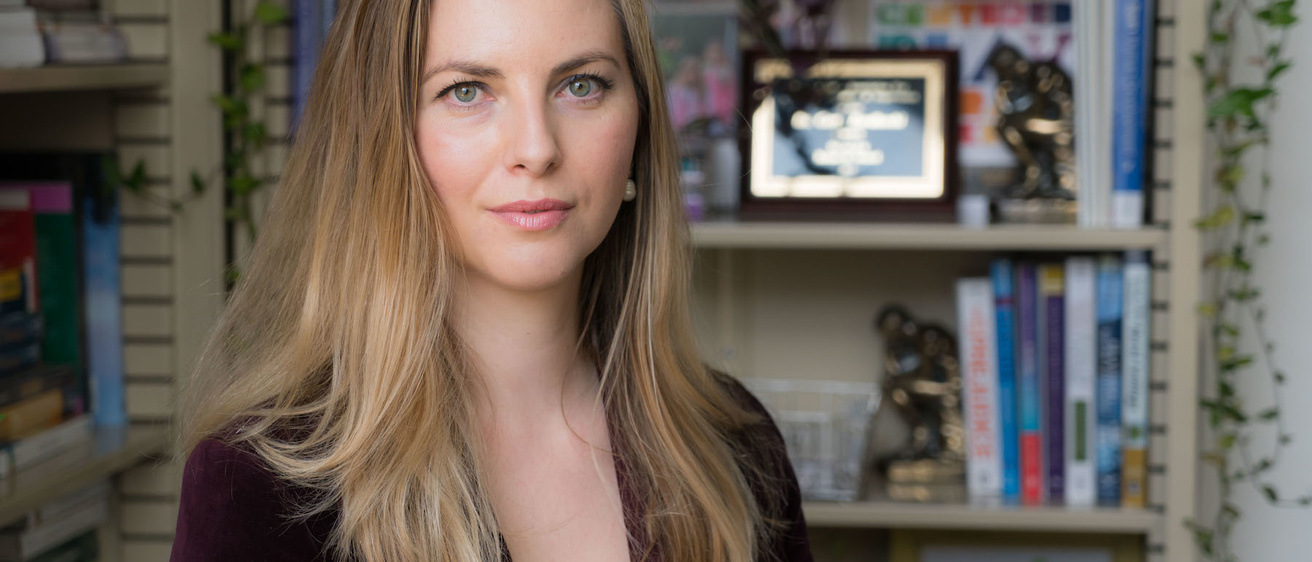Gerta Bardhoshi is passionate about social-emotional-behavioral health (SEBH) and its impact on holistic student success.
Bardhoshi, associate professor in Counselor Education and director for research and training in the Scanlan Center for School Mental Health, carries this passion into her research, which looks at designing and implementing school-based interventions to improve social-emotional and mental health outcomes for diverse students. She also does research on counselor burnout and evaluating counseling instruments that measure a range of clinical outcomes.
“Maintaining a vibrant and effective mental health workforce is critical for helping students’ SEBH needs,” Bardhoshi says. “I hope to shine a light on the protective factors and practices that can help counselors thrive in a demanding profession.”
Her high-quality research has earned Bardhoshi the 2022 American Counseling Association (ACA) Research Award. The ACA is the world’s largest association exclusively representing professional counselors in various practice settings. She will be recognized with the award at the annual American Counseling Association Conference & Expo April 7-9 in Atlanta, Georgia. The conference is the premier professional development and networking event for licensed professional counselors, students, and mental health professionals.
“It feels motivating to be recognized by my profession after a decade of what at times feels like a painstaking and ambiguous search for meaningful findings,” Bardhoshi says. “I hope that my work can serve as a springboard for promoting accurate, effective, and systemic counseling assessment in schools, ultimately helping with early identification and prompt school-based intervention.”
The impact of Bardhoshi’s work goes beyond what is accomplished in school buildings.
“Mental health awareness in schools can be a game-changer, not only for students, but also for teachers, parents, and entire communities,” Bardhoshi says. “I am passionate about training the next generation of engaged counselors who can empower schools with the knowledge and skills to improve mental health outcomes.”
Bardhoshi says she feels fortunate to be at an institution that provides faculty with extensive support for research.
“Internal funding and support provided by the College of Education and the Provost’s Office were critical in advancing my research and have made a tremendous difference in my academic trajectory,” Bardhoshi says.
Bardhoshi also works with the new Scanlan Center for School Mental Health, located within the College of Education. The center, a partnership with the Iowa Department of Education, was created in summer of 2021 to address PreK-12 student and educator SEBH needs and recently expanded to also serve college/university faculty and staff. As the state’s hub for school-based mental health, the Center delivers high-quality professional development, cutting-edge research, and clinical assessment and intervention services. In her role as the director of research and training, Bardhoshi helps to promote, implement, and evaluate school mental health evidence-based practices.
In the coming years, Bardhoshi hopes to expand her interdisciplinary collaborations and conduct more intervention research.
As for right now? Bardhoshi wants people to know that counseling works.
“Mental health concerns are highly treatable,” Bardhoshi says. “Seeking help from a licensed mental health professional can make a big difference in reducing symptoms and improving quality of life. Even though we sometimes need expert help to navigate life’s difficulties, humans are oriented towards growth and are very resilient.”
